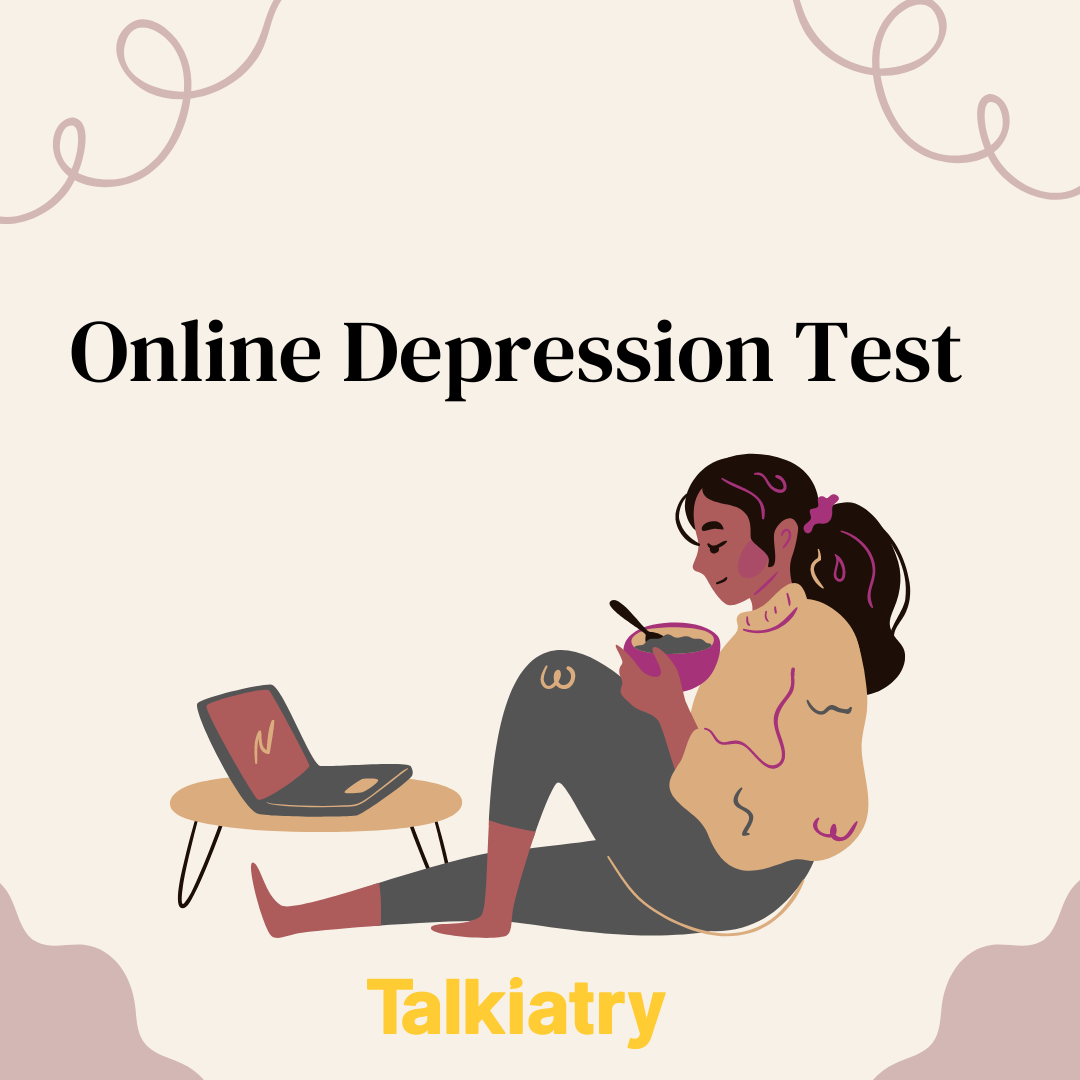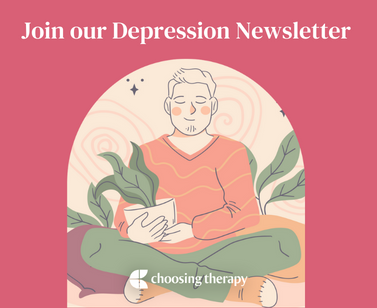Psychiatric service dogs are specifically trained to help their owners manage various mental health issues, including depression. While every owner has different needs, a service dog for depression can help you execute difficult tasks. You must qualify for a mental disability and receive adequate training to make your dog eligible for this requirement.1
Depression Is Treatable With Therapy Would you like to feel more happiness and joy? BetterHelp has over 20,000 licensed therapists who provide convenient and affordable online therapy. BetterHelp starts at $65 per week. Take a Free Online Assessment and get matched with the right therapist for you.
What Are Service Dogs for Depression?
Service dogs support individuals function and manage daily responsibilities. Service dogs may be used to help people with various physical and mental health conditions. People with depression may have a therapy dog to help bring medication, offer tactile stimulation, wake someone up, and create a signal if someone is heavily sedated in a dangerous situation.
Will a Dog Help With Depression?
Research supports that dog owners have lower depression scores than people without dogs.2 Having a close relationship with a dog is also associated with heightened feelings of companionship and emotional support.3 Pets also require nurturing, stability, regular exercise, and food, and adhering to that schedule can provide a much-needed sense of structure. This can be beneficial for people with depression.
Any dog can help boost someone’s mood. Service dogs, however, provide a more proactive role in supporting your everyday functioning. They “work” to make daily living more accessible. In addition, because the ADA protects service animals, you can bring your pet anywhere you go. This can be beneficial as you navigate running errands or moving out and about throughout your day.
What Service Dogs for Depression Can Do
Service dogs for depression are trained to perform a variety of tasks based on their handler’s presenting issues. Their overall job is to help reduce or alleviate some of the most concerning depression symptoms. Subsequently, they also provide comfort, relief, and friendship, which can bolster someone’s emotional well-being. Some tasks support daily living, whereas others are centered on executing emergency actions.1
Common tasks a therapy dog for depression can provide include:
- Turning off lights to aid sleep
- Fetching medicine on a specific schedule
- Disrupting self-harm behaviors by laying on the owner or bringing over a toy
- Providing support when their owner is crying
- Offering consistent companionship during daily functioning
- Opening cabinets and doors to retrieve important items
- Bringing the owner their phone in the event of an emergency
- Directing emergency personnel to the owner if needed
- Guiding a disoriented owner to a specific destination
- Offer tactile support when the owner is visibly distraught
Benefits of a Service Dog for Depression
Service dogs can be specifically trained to assist individuals with depression. They may reduce or eliminate certain depression symptoms. In addition to helping you function better in daily life, psychiatric service dogs are also able to go wherever you go. This can be especially important if you need support while you’re away from your home environment.
- Reducing loneliness: Pets can reduce loneliness and increase happiness. They offer a sense of companionship, which can be especially valuable for people who live alone.
- Sense of purpose: Having and looking after a service dog can offer a significant sense of purpose. This can be an important protective factor for people with depression.
- Better quality of life: Service dogs can augment your overall quality of life. That’s because people with dogs may be more likely to socialize with others, spend time exercising and playing with their pets, and devote time to training and connecting.
- Augment other treatment efforts: Your relationship with your service dog may be an important component of your overall depression management. This can support other treatment efforts including psychotherapy and medication.
- Sense of safety and security: Many people with dogs report psychologically feeling safer in their homes. Trained dogs can guard property, which can deter intruders.
How to Get a Service Dog for Depression
Some owners seek to apply their current dogs to become service dogs. Others may use organizations that match eligible owners with service dogs. All service dogs must undergo specific training to demonstrate they can perform the tasks needed to support your depression. They also must be under your control at all times, pass a public access test, and receive certification and registration.4
Depression Is Treatable With Therapy Would you like to feel more happiness and joy? BetterHelp has over 20,000 licensed therapists who provide convenient and affordable online therapy. BetterHelp starts at $65 per week. Take a Free Online Assessment and get matched with the right therapist for you.
Emotional Support Animal Vs Service Dogs
Service dogs are protected under the ADA, and they are designated for dogs that are individually trained to support their owner’s disability. Emotional support animals are intended to provide relief and companionship, but they do not demonstrate the same skill set for carrying out designated tasks. Only service dogs are legally allowed in most public places and housing.
Criteria & Eligibility for a Depression Service Dog
The first step to turning your current dog into a service dog is to obtain a depression diagnosis written and dated by a qualified healthcare professional. While there is no official organization that establishes service dog training standards, it’s generally recommended to spend at least 120 hours over 6 months training your dog to execute the intended service tasks.
Dogs must be able to pass a public access test, which refers to displaying no aggressive behavior, sniffing behaviors, solicitations for food, or hyperactivity. They also can’t engage in excessive barking or unruly behavior. The U.S. does not legally require service dog certifications, but many public establishments want to see proof of a service dog status. You may elect to carry a service dog ID card and/or service dog vest.
Selecting a Service Dog for Depression
The American Kennel Club (AKC) indicates that the best service dogs have smart and warm temperaments that exude a sense of calmness and reliability. They also need to be attentive and focused during their training. Any breed may qualify, but popular breeds include labrador retrievers, German shepherds, poodles, Great Danes, collies, Pomeranians, and golden retrievers.5
Training Programs & Providers
The ADA does not require service dogs to be professionally trained. Therefore, you may consider pursuing training your dog yourself by following the AKC Canine Good Citizen program or taking a DIY training course. In addition, many nonprofit and for-profit service dog training programs can help you train your service dog. Note that the costs of these programs vary, and some may cost up to $25,000+.
Can an Existing Family Dog Become a Service Dog?
Yes, a current pet dog can become a service dog. As mentioned, the ADA does not require any formal certification for a dog to be a service dog. However, owners still need to consider several variables, including the dog’s age, health status, and temperament. They also must think about how much time and money they can reasonably set aside for proper training.
In general, it’s recommended to start formal service dog training when a dog is between 6 months to 1-year old. Your dog should be in good health with an alert and affectionate temperament. The first step is to establish your current training program and consider whether you want to do your own training or hire a professional to help you.
How Much Does a Service Dog for Depression Cost?
Psychiatric service dogs can be costly with some sources citing that the average cost ranges between $20,000-$30,000. This includes initial costs, training expenses, and ongoing care. However, there are many grants and non-profit organizations dedicated to connecting service dogs with owners. Similarly, many states also have nonprofit service dog training facilities. However, wait times for these services may be several months or years.
Legal Rights & Responsibilities for People With Service Dogs
Under the ADA, service dogs are permitted in any public place, including public transportation, public parks, and government buildings. They are also allowed in various accommodations, including hotels, restaurants, hospitals, airplanes, and retail stores. Owners must always care for and control their service dog, and they may be asked to remove the animal if it is unruly.
Other Ways to Cope With Depression
Service dogs can augment depression treatment. However, taking care of a service dog requires a significant amount of time, effort, and money. This option may not be suitable for everyone. In addition, depression is a complex condition, and it’s important to consider what else you can do to manage your emotional well-being.
Help For Depression BetterHelp – Get help from a licensed therapist. BetterHelp offers convenient and affordable online therapy starting at $65 per week. Free Assessment Talkspace – Online Therapy With Or Without Insurance. Talkspace accepts many insurance plans including Optum, Cigna, and Aetna. Typical co-pay is $30, but often less. Get started
Here are some proactive steps to cope with depression:
- Mindfulness: Mindfulness for depression refers to being more intentional in the present moment and trying to stay in the here and now. Doing this can help you ruminate less about the past or worry less about the future.
- Meditation: Meditation for depression may include intentionally deep breathing or following a guided meditation prompt. Doing this regularly may reduce depressive symptoms.
- Exercise: Exercise benefits mental health by releasing feel-good hormones. Exercise may also coincide with more socialization and spending time in nature, which can also increase your emotional well-being.
- Journaling: Journaling for depression may include writing down your thoughts at a specific time each day. It might also entail following guided mental health prompts intended to deepen self-awareness and draw insight into important patterns.
- Giving back to your community: Volunteering can boost your self-esteem and cultivate a sense of gratitude. Consider getting involved in a local volunteering group.
- Seeking humor: Watching sitcoms, looking through funny content, or simply laughing with friends can quickly boost your mood. While this won’t inherently fix depression, prioritizing laughter can simply make things in life feel much lighter.
- Eat regularly: The mind and body are closely connected. Try to prioritize your physical health, and you may note that doing so improves your mental well-being. Pick foods known for helping depression.
- Prioritize your sleep hygiene: Good sleep can promote better mental health. Develop good sleep hygiene habits like trying to go to bed at the same time each night and waking up around the same time every morning.
Treatment Options for Depression
Regardless of whether you have a service dog, you may benefit from seeking professional support. There is no cure for depression, but the right treatment can help you manage your symptoms and maintain a good quality of life. Depression treatment may consist of a combination of therapy, medication, and lifestyle factors.
Treatment options for depression include:
Therapy
Depression therapy is a frontline treatment for managing mood disorder symptoms. Therapy focuses on understanding triggers, learning healthier ways to cope with intense emotions, and building a stronger sense of self. It may also address co-occurring issues related to trauma, family dynamics, low self-esteem, addictive behaviors, and more. Therapy is generally once a week and may last for several months.
Common types of therapy used for depression include:
- Cognitive behavioral therapy (CBT): CBT for depression focuses on changing negative thoughts to replace them with more adaptive ones. CBT therapists also focus on teaching concrete skills aimed at changing unwanted behaviors.
- Exposure therapy: Exposure therapy entails confronting feared situations, and this therapy may be used when someone has co-occurring phobias or anxiety.
- Acceptance and Commitment Therapy (ACT): ACT blends mindfulness with cognitive skills, and this can help people choose to live in a way that’s more aligned with their values.
- Dialectical behavioral therapy (DBT): DBT for depression helps people strengthen skills specifically rooted in distress tolerance, emotional regulation, interpersonal effectiveness, and mindfulness.
- Eye Movement Desensitization and Reprocessing (EMDR): EMDR for depression is a manualized protocol that may be recommended when someone feels “stuck” in past trauma or unable to move past a negative belief about themselves.
- TMS: TMS for depression is a non-invasive procedure that entails placing electric currents against the head. This stimulates neurons and may reduce depression symptoms.
Medication
Depression medication is sometimes recommended as part of someone’s treatment plan. Only a medical doctor can prescribe psychiatric medication, so you will need to arrange for a consultation with either your primary care physician or a psychiatrist. A therapist might talk to you about the pros and cons of medication, but they cannot prescribe it.
Common medications prescribed for depression include:
- Antidepressants: SSRIs, SNRIs, and tricyclic antidepressants are typically prescribed for depression, as they regulate serotonin and dopamine levels in the brain.
- Psilocybin therapy: Psilocybin therapy is psychedelic mushrooms combined with psychotherapy, and it may boost mood and heighten feelings of calmness and contentment.
- Wellbutrin: Wellbutrin may be prescribed for depression when someone has adverse side effects after using other antidepressants. It may also be used in conjunction with other antidepressants.
Therapy Apps
Therapy apps for depression, such as Youper, can help people reduce depression by supporting and encouraging the use of healthy coping strategies. These apps may be used on their own or in conjunction with other treatment approaches. Some also allow you to share insights and journal entries directly with your therapist. Both the Apple and Google app stores have numerous free and paid app options available.
When to See a Therapist for Depression
A therapist can help you whether you experience mild, moderate, or severe depression. Individual therapy works by providing you with a safe and non-judgmental environment to process your feelings and receive support. Group therapy often focuses on psychoeducation, coping skills, and using peer-based support to improve depression symptoms. You can look for a provider near you using our online therapist directory or an online therapy platform.
In My Experience
To help our readers take the next step in their mental health journey, Choosing Therapy has partnered with leaders in mental health and wellness. Choosing Therapy is compensated for marketing by the companies included below. Talk Therapy Online-Therapy.com – Get support and guidance from a licensed therapist. Online-Therapy.com provides 45 minute weekly video sessions and unlimited text messaging with your therapist for only $64/week. Get Started Online Psychiatry Hims / Hers If you’re living with anxiety or depression, finding the right medication match may make all the difference. Connect with a licensed healthcare provider in just 12 – 48 hours. Explore FDA-approved treatment options and get free shipping, if prescribed. No insurance required. Get Started Depression Newsletter A free newsletter from Choosing Therapy for those impacted by depression. Get helpful tips and the latest information. Sign Up Learn Anti-Stress & Relaxation Techniques Mindfulness.com – Change your life by practicing mindfulness. In a few minutes a day, you can start developing mindfulness and meditation skills. Free Trial Choosing Therapy Directory You can search for therapists by specialty, experience, insurance, or price, and location. Find a therapist today.Additional Resources
Online Depression Test A few questions from Talkiatry can help you understand your symptoms and give you a recommendation for what to do next. Best Online Psychiatry Services Online psychiatry, sometimes called telepsychiatry, platforms offer medication management by phone, video, or secure messaging for a variety of mental health conditions. In some cases, online psychiatry may be more affordable than seeing an in-person provider. Mental health treatment has expanded to include many online psychiatry and therapy services. With so many choices, it can feel overwhelming to find the one that is right for you.











